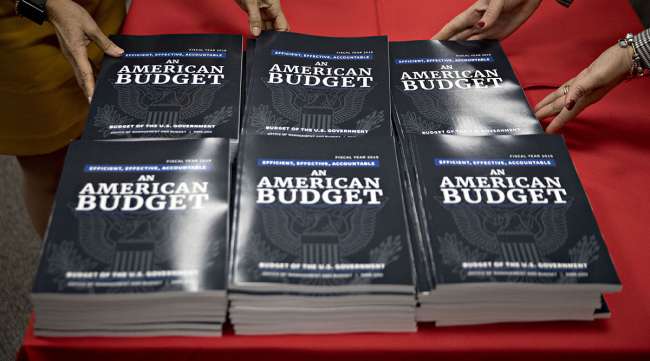Senior Reporter
Fiscal 2019 Budget Request Would Cut TIGER Grants

A program popular with state and local agencies that provides federal infrastructure grants would be denied funding under the Trump administration’s fiscal 2019 budget request released Feb. 12, which also would significantly reduce the Department of Transportation’s budget.
DOT’s discretionary budget would be slashed by 19% from fiscal 2017 enacted levels. Key funding reductions would pertain to Amtrak and transit programs.
The Federal Motor Carrier Safety Administration would receive $665.8 million. Of that, $381.8 million would be dedicated for motor carrier safety grants, which would include $304.3 million for the motor carrier safety assistance program, $44 million for the high priority activities program, $32.5 million would be available for the commercial driver’s license program implementation financial assistance program and $1 million would be used for the commercial motor vehicle operators grant program.
Also, $284 million would fund research and innovation programs.
For other agencies, $45.8 billion would go toward the Federal Highway Administration, $16.1 billion for the Federal Aviation Administration, $11.1 billion for the Federal Transit Administration, $914.7 million for the National Highway Transportation Safety Administration, $854 million for the Federal Railroad Administration and $254.3 million for the Pipelines and Hazardous Materials Safety Administration.
No funding was requested for the Transportation Investment Generating Economic Recovery, or TIGER, discretionary grant program, which offers $500 million in discretionary grants for state and local governments. That move mirrored the administration’s previous request.
In 2017, Congress rejected the administration’s call on TIGER and approved funding for the grants. Since 2009, $5.1 billion has been awarded for capital investments for surface transportation infrastructure, according to U.S. DOT. Governors and mayors continue to tout the grants, which have been used to invest in freight and passenger connectivity projects, as well as big-ticket highway expansions.
Recipients of the grants include a freight mobility project along U.S. 169 in Scott County, Minn., and Maryland’s Port of Baltimore.
Speaking to reporters shortly after the budget request was unveiled, Transportation Deputy Secretary Jeffrey Rosen said funding that would have been dedicated for the TIGER program would instead fall under the purview of a $200 billion infrastructure proposal President Donald Trump unveiled Feb. 12 also. The proposal would ideally generate $1.5 trillion in investments over 10 years through state and municipal funds, and private sector buy-in.
“In regards to the TIGER program, the real idea is to fold that into the new initiative so that the kinds of projects that would be eligible for TIGER today would be eligible under the new infrastructure initiative,” Rosen told reporters. “So although the budget numbers go down for TIGER [grants], they will in a sense be transferred into the infrastructure proposal. And that’s true of some of the other reductions, as well.”
It is unclear when Congress will debate the president’s request, and to what degree the request would be honored. Funding leaders on Capitol Hill are tied up finalizing a fiscal 2018 funding bill ahead of a March 23 deadline to avoid a partial government shutdown. So far this year, two mini-shutdowns have occurred under a GOP-controlled Congress and a Republican commander-in-chief.
The budget request and Trump’s infrastructure proposal stopped short of detailing a long-term funding fix for the Highway Trust Fund. The account is projected to be insolvent by the end of fiscal 2020.
Since 1993, the federal gas tax has been 18.4 cents-per-gallon, and the diesel tax 24.4 cents-per-gallon. The rate is no longer sufficient for maintaining trust fund’s solvency. The account helps states with maintenance and construction projects. Over the last decade, more than two dozen states increased fuel taxes in response to Congress’ inaction on long-term transportation funding.
Transportation Secretary Elaine Chao acknowledged the account’s funding crisis is looming.
“Clearly the Highway Trust Fund, with its cliff at the end of 2020, is a subject of great concern. So that will have to be addressed, either in the infrastructure proposal or, if not in the infrastructure proposal, in the reauthorization of some sort,” Chao told reporters Feb. 12.

